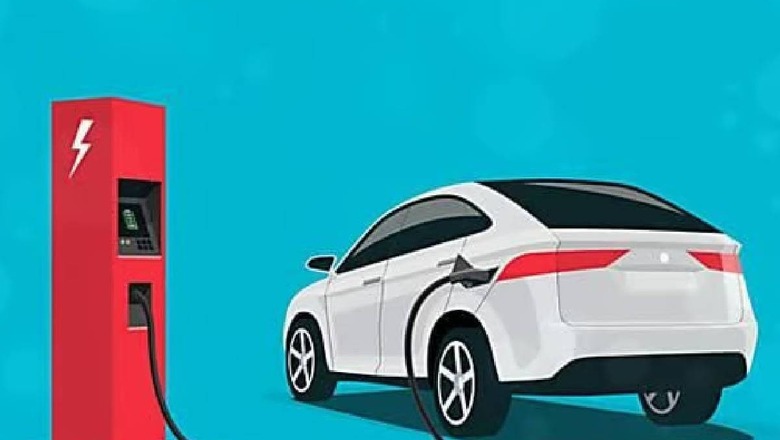
views
In a written reply to the Lok Sabha on February 6, Minister of State for Heavy Industries Krishan Pal Gurjar, stated that as of February 2, this year, there were 12,146 electric vehicle (EV) charging stations in operation in India.
Maharashtra leads the list with 3,079 electric vehicle charging stations, followed by Delhi with 1,886, and Karnataka stands in third place with 1,041 charging stations, according to the minister’s data.
Meanwhile, the other states making up the top 10 include – Kerala (852), Tamil Nadu (643), Uttar Pradesh (582), Rajasthan (500), Telangana (481), Gujarat (476), and Madhya Pradesh (341).
The Ministry of Heavy Industries (MHI) has made consistent efforts to promote electric vehicles in India. The FAME-II scheme, according to Minister Gurjar, included financial support in the form of subsidies for the establishment of public charging infrastructure to instil confidence in EV users. Furthermore, the Ministry of Power has launched several initiatives to accelerate the deployment of public electric vehicle charging infrastructure across the country.
The government has published guidelines and standards for charging infrastructure, which allow EV owners to use their current electricity connections to charge their vehicles at home or work. This information was released through a press release from the MHI.
Along with the introduction of a revenue-sharing model, plans have been made to supply land at promotional rates for public charging stations as well as an electricity connection to Public Charging Stations (PCS) within predetermined timeframes, the press release mentions.
Additionally, the government has established a single-part EV tariff for public charging stations. Until March 31, 2025, this amount cannot surpass the Average Cost of Supply (ACoS). According to the guidelines, the maximum amount of electricity used for slow AC charging of EVs at PCS during solar and non-solar hours is Rs 2.50 per unit and Rs 3.50 per unit, respectively.
There is also a cap on the amount of electricity that can be used at PCS for DC fast-charging EVs during solar and non-solar hours, respectively, of Rs 10 and Rs 12 per unit. A 20 per cent rebate will be applied to PCSs’ average cost of supply (ACoS) by DISCOMs during solar hours, and a 20 per cent surcharge will be applied during all other hours.
The Green Energy Open Access Rules, 2022, have been notified to accelerate renewable energy adoption and ensure universal access to affordable, reliable, sustainable, and green energy, according to the Minister of State for Heavy Industries, Gurjar.




















Comments
0 comment